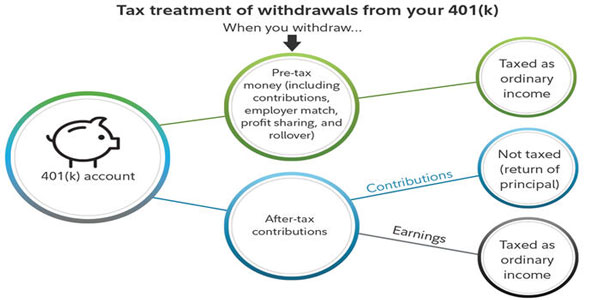Worried about retirement or protecting your savings? Fixed-income investments might be the answer! They offer a steady income stream and are known for lower risk than stocks. Studies by Vanguard show that fixed-income investments make up a substantial portion of retirement portfolios for a reason: stability. So, this guide will break down everything you need about fixed-income investments, from the different types to how to get started. Let's dive in and build your safer nest egg!
What Are Fixed-Income Investments?
Fixed-income investments are guaranteed return investments that offer regular income through fixed-interest payments. These investments typically include government bonds, corporate bonds, certificates of deposit (CDs), and money market funds.
They come with set interest rates and promise to return the original investment amount upon reaching their maturity date. Ideal for those who prefer a steady income stream and less risk, fixed-income investments are trendy among conservative investors and retirees looking to add stability to their portfolios.
What Are the Types of Fixed-Income Investments?
Within the fixed-income investments world, there are several key players to consider. Here's a breakdown of some of the most common ones:
1. Bonds
Currently, 44% of advisor fixed-income portfolios are allocated to high-quality bonds. They are a type of investment where you lend money to an entity (like a government or a company) in exchange for regular interest payments and the return of the bond's face value at the end of a set period.
When you buy a bond, you're giving a loan to the issuer. The issuer promises to repay you the original amount (called the principal) on a specified date (maturity date). Until that date, they also pay you interest, usually at a fixed rate.
Types of Bond
The most famous bond types are:
- Government Bonds: Low risk, providing stable but relatively low income. They are considered safe, especially bonds issued by stable governments such as US Treasuries.
- Corporate Bonds: Varying levels of risk and income, depending on the issuing company's creditworthiness. Higher-rated bonds offer lower income with lower risk, while lower-rated bonds (high-yield or junk bonds) offer higher income with higher risk.
- Municipal Bonds: Low to moderate risk, with income levels often lower than corporate bonds but attractive due to tax-exempt status. The risk varies with the financial health of the issuing municipality.
- Treasury Inflation-Protected Securities (TIPS): Low risk, with income adjusted for inflation. It provides a stable and secure income that maintains purchasing power.
- Sovereign Bonds: Risk and income levels vary widely depending on the issuing country's economic and political stability. Bonds from stable countries offer low risk with moderate income, while those from less stable countries can offer high income with high risk.
- High Yield Bonds (Junk Bonds): High risk, offering high income to compensate for the increased chance of default by the issuing company.
- Convertible Bonds: Moderate risk, providing income with the potential for higher returns through conversion to equity if the issuing company's stock price increases.
Investors choose among these bond types based on their risk tolerance, investment goals, and the need for income or growth. You can buy bonds from other investors when they're first issued or on the secondary market. The price can fluctuate based on interest rate changes, the issuer's credit rating, and other factors.
Bonds Pros and Cons
Advantages of Bonds
- Bonds typically have less day-to-day price fluctuations compared to stocks, making them perceived as safer investments.
- Unlike stocks, which may or may not pay dividends, bonds provide a stable income stream to the bondholder because of the fixed interest payments.
- They are often easier to sell without significantly affecting their price.
- In the event of a company's bankruptcy, bondholders usually receive some repayment, unlike stockholders, who may lose their entire investment.
Disadvantages of Bonds
- Bonds generally offer lower potential returns over the long term than stocks or other riskier investments.
- Bond prices are inversely related to interest rates. When interest rates rise, bond prices fall, which can lead to capital losses for bondholders.
- Bonds may not offer sufficient returns to keep pace with inflation, resulting in bondholders losing purchasing power over time.
- There is always the risk that the bond issuer may default on its payments, especially with lower-rated or junk bonds. Consequently, there is a potential loss of principal for investors.

How Should Invest in Bonds?
Bonds are ideal for those approaching retirement and looking for reliable returns without exposing their savings to significant market volatility. Investors aiming to diversify their portfolios may benefit from bonds as they balance and reduce overall investment risk.
2. Certificates of Deposit (CDs)
Certificates of Deposit are a type of savings account offered by banks and credit unions with a fixed interest rate and a fixed maturity date. When you open a CD, you choose how long you want to keep your money in it, like 6 months, 1 year, or even longer. This is known as the term of the CD. CDs offer a guaranteed interest rate usually higher than regular savings accounts. The rate doesnt change during the CD term. Importantly, CD rates have begun to move back up, with the average one-year CD now giving an average yield of 1.74% vs 1.53% APY a year ago.
You'll likely have to pay a penalty if you decide to take your money out before the CDs term ends. Moreover, CDs are considered a safe investment because they are FDIC-insured up to $250,000, which means your money is protected even if the bank fails.
Types of Certificates of Deposit
- Traditional CDs: These offer a fixed interest rate and term, typically ranging from a few months to several years.
- Callable CDs: Issuers can "call back" the CD before maturity, potentially offering higher interest rates but carrying the risk of early redemption.
- Bump-Up CDs: Investors can "bump up" their interest rate if rates increase during the CD term, providing some flexibility in a rising rate environment.
- Brokered CDs: Purchased through brokerage firms, these CDs offer access to a wider range of issuers and terms but may come with higher fees and less liquidity.
- Jumbo CDs: Designed for more significant investments, jumbo CDs typically offer higher interest rates but require a larger initial deposit.
Certificates of Deposit Pros and Cons
Advantages of Certificates of Deposit
- CDs offer a fixed interest rate and stable return on your investment over the term of the CD.
- Typically, CDs provide higher interest rates compared to regular savings accounts.
- Laddering CDs allows flexibility by staggering maturity dates and reducing the risk of missing out on better rates.

Disadvantages of Certificates of Deposit
- CDs are illiquid, with penalties for early withdrawal.
- Long-term CDs are vulnerable to inflation, which can erode the value of investments over time.
- CDs may not offer returns comparable to stocks or bonds.
Who Should Invest in Certificate of Deposit?
CDs suit conservative investors who prioritize capital preservation and predictable income streams. Additionally, investors with short- to medium-term financial goals who can afford to lock up their funds for a predetermined period may find CDs attractive.
Those looking for alternatives to traditional savings accounts with potentially higher interest rates can also benefit from investing in CDs.
3. Money Market Funds
Money Market Funds are a type of mutual fund designed to offer investors high liquidity with a shallow level of risk. They invest in short-term, high-quality debt securities. These can include government bonds, treasury bills, certificates of deposit, and commercial paper from reputable companies.
Moreover, these funds are considered safer than many other investments because they invest in highly rated short-term debt. They aim to maintain a stable value, typically $1 per share, making them a low-risk option for investors.
Additionally, the returns on Money Market Funds are generally modest but competitive, especially compared to regular savings accounts. The interest rates can fluctuate based on the overall interest rate environment.
Types of Money Market Funds
- Prime Money Market Funds: Invest in short-term corporate and bank debts, offering slightly higher yields with more risk.
- Government Money Market Funds: Focus on U.S. government securities, providing very high safety due to government backing.
- Treasury Money Market Funds: Invest exclusively in short-term U.S. Treasury securities, considered the safest due to government guarantee.
- Tax-Exempt Money Market Funds: Target short-term municipal securities offering tax-free returns beneficial for those in higher tax brackets.
- Retail Money Market Funds: Designed for individual investors, these funds offer easy access and low minimum investments, investing in a mix of securities.
- Institutional Money Market Funds: Aimed at institutional investors with higher minimums, offering better yields through economies of scale, and focusing on various short-term securities.
Money Market Funds Pros and Cons
Advantages of Money Market Funds
1. Money market funds invest in low-risk securities like Treasury bills and CDs. Thus provide stability during volatile market conditions.
2. Investors instantly diversify their portfolios by investing in various securities, reducing risk through asset spreading.
3. Money market funds are highly liquid, allowing easy buying and selling due to investments in high-demand securities.
Disadvantages of Money Market Funds
1. Compared to riskier investments, money market funds may offer lower returns, potentially limiting long-term wealth accumulation.
2. Money market funds are not FDIC-insured. Therefore, investors are exposed to loss if the fund management company becomes insolvent.
3. Investors may incur operating or withdrawal fees, impacting overall returns.
4. While stable, money market funds may lack the growth potential of riskier investments like stocks.
Who Should Invest in Money Market Funds?
Money market funds are a good fit for folks looking to park their cash somewhere safe and earn a little bit more than a regular savings account. They're ideal if you have a short-term goal, like saving for a down payment or vacation, and want to avoid losing money in the stock market.
Conclusion
Fixed-income investments, including bonds, certificates of deposit, and money market funds, offer attractive options for investors seeking stability and security in their portfolios. These investments provide a steady income stream and are known for their lower risk than stocks, making them popular among conservative investors and retirees.
While each type of fixed-income investment has advantages and disadvantages, they all play a vital role in building a safer nest egg for the future.
No matter if you're prioritizing capital preservation, seeking predictable income streams, or aiming to diversify your portfolio, fixed-income investments are accessible and reliable options to help achieve your financial goals.











